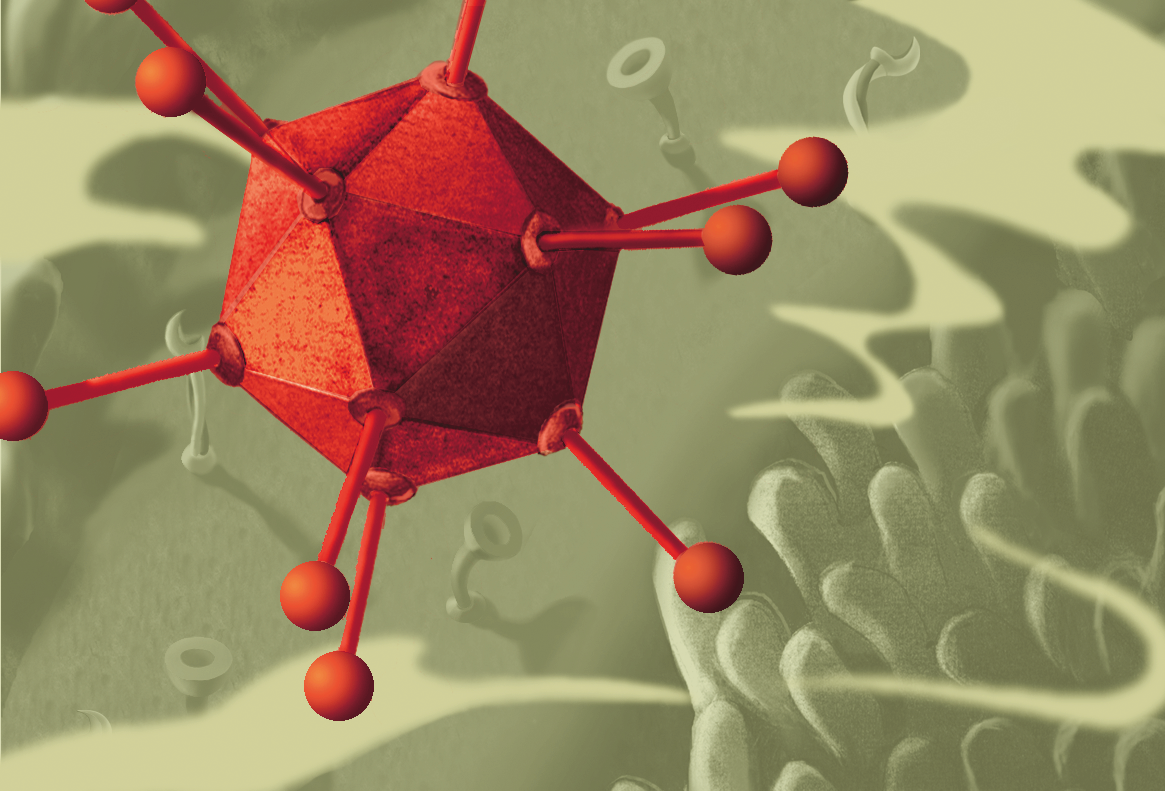Virology
MSc Coordinator of the Master in Virology
Prof. Dr. Ben Hale (hale.ben* virology.uzh.ch)
Study Coordinator
PD Dr. Karin Isler (studienkoordination * biol.uzh.ch)
OVERVIEW
Viruses are nano-carriers of nucleic acids, proteins and variably, lipids and sugars. They infect many if not all cells, albeit by different mechanisms and outcomes. Virologists study the nature of viruses, and unravel the mechanisms by which viruses infect cells and cause disease. They employ methods from molecular and cell biology, immunology, biochemistry, structural biology, systems biology and mathematical modelling. Virology is also closely associated with clinical and medical sciences, such as epidemiology. The program involves leading experts in virology, infectious disease, molecular cell biology and computational modelling.
MASTER OF SCIENCE IN VIROLOGY
The student is interested in understanding viral life cycles, host and viral factors that enhance or suppress infections, pathogenicity of viruses and immune defence against viral infections and viral evasion strategies. He/she learns how to grow viruses, carry out controlled infections of cells or animals, and analyse and interpret the data in light of virological, cell biological, immunological and medical relevance. The student uses chemical and genetic perturbations of viruses or target cells, and employs a broad range of molecular tools to analyse phenotypic and genotypic features of virus strains, infected cells or tissues. The student develops a solid foundation for a mechanistic understanding of viral disease in cells, animals or humans at the molecular, systems or population levels, and this may also epidemiological and modelling aspects.
Students completing the Master in Virology should be able to:
- Describe and explain complex viral infection and disease mechanisms in their own field of studies and beyond.
- Define the key concepts and methods used in their field of study.
- Critically analyse data from the literature, in the light of the state-of the-art in their field.
- Identify unsolved problems and key questions within a particular area of virology.
- Formulate a scientific hypothesis, design and conduct experiments for testing it.
- Design experimental strategies with appropriate positive and negative controls, and interpret the data.
- Communicate results effectively in both written and oral forms to a scientific audience in the format of reports, oral presentations or posters.
NOTE FOR FOREIGN STUDENTS
Students with a Bachelor's degree in Biology, Biochemistry or a related subject from a University other than the University of Zurich must apply online for admission.
See specific information
GUIDELINES
A total of at least 16 ETCS credit points (ECTS) are to be chosen in agreement with the thesis supervisor and the master coordinator.
Compulsory
| BIO 615 | 03 ECTS | Virology: Principles of Molecular Biology, Pathogenesis, and Control of Human Viruses |
| BIO 338 | 00 ECTS |
Introduction to Scientific Writing (one day in September or February). The module should be taken before writing the Master’s Thesis. |
Courses amounting to a total of 12 credit points are to be taken from the following lists A+B (at least one course from Block A).
Block A
| BIO 321 | 06 ECTS | Modern Microscopy in Life Science Research |
| BIO 322 | 06 ECTS | Cell Biology of Viral Infections |
| BIO 372 | 06 ECTS | Virology: Pathogenesis and Control of Human Viruses |
| BIO 374 | 06 ECTS | Virology: Biology of Virus Infection and Evolution |
| BIO 445 | 06 ECTS | Quantitative Life Sciences: from Infectious Diseases to Ecosystems |
| BME 363 | 06 ECTS | Gene Therapy from Bench to Bedside |
Block B
|
BCH 308 BCH 309 |
06 ECTS | Experimental Biochemistry |
| BIO 253 | 06 ECTS | Research Cycle in Genomics |
| BIO 260 | 06 ECTS | Molecular Biology Course for Biology and Medicine |
| BIO 330 | 06 ECTS | Modelling in Biology |
| BIO 430 | 06 ECTS | Immunology |
| BIO 431 | 06 ECTS | Cell Death, Inflammation and Immunity |
| BIO 439 | 06 ECTS | Current Topics in Immunology |
| BME 307 | 06 ECTS | Microbiomes in Health and Disease |
| BME 330 | 06 ECTS | Quantitative Biomedicine |
| BME 331 | 06 ECTS | Tissue Imaging |
Additional recommended courses
| BCH 252 | 03 ECTS | RNA and Proteins: Post-Transcr. Regulation of Gene Expression |
| BIO 284 | 06 ECTS | Systemic Microbiology |
| BIO 347 | 03 ECTS | Concepts in Developmental Biology: from Cells to Animals |
| BIO 392 | 06 ECTS | Bioinformatics of Molecular Sequence Variations |
| BIO 407 | 06 ECTS | Advanced Microscopy |
| BIO 557 | 02 ECTS | Scientific Writing and Experimental Design for Life Sciences |
| BIO 617 | 01 ECTS | Principles of biosafety in medical and biological research |
| BIO 708 | 02 ECTS | Gene Therapy from Bench to Bedside - Theory |
| ETHZ | 04 ECTS | Infectious Agents: From Molecular Biology to Disease ETHZ_551-1100-00 |
| STA 120 | 05 ECTS | Einführung in die Statistik |
Recommended elective modules in the basic studies:
BCH 202, BCH 215, BIO 390, PHY 127, MAT 141, STA 120, BME 235, BME 236, BME 245, BME 248
RESEARCH GROUPS LEADERS FOR MASTER THESES
| Prof. Dr. | Fraefel Cornel |
| Prof. Dr. | Günthard Huldrych |
| Prof. Dr. | Hale Ben |
| Prof. Dr. | Hennet Thierry |
| Prof. Dr. | Hottiger Michael |
| Prof. Dr. | Kouyos Roger |
| Prof. Dr. | LeibundGut-Landmann Salomé |
| Prof. Dr. | Metzner Karin |
| Prof. Dr. | Müller Nicolas |
| Prof. Dr. | Münz Christian |
| Prof. Dr. | Reichenbach Janine |
| Prof. Dr. | Speck Roberto |
| Prof. Dr. | Stertz Silke |
| Prof. Dr. | Trkola Alexandra |
| Prof. Dr. | Von Mering Christian |
| Prof. Dr. | Wong Lynn |
